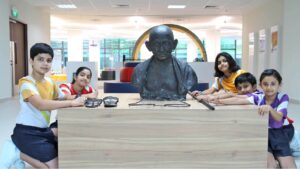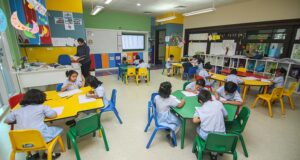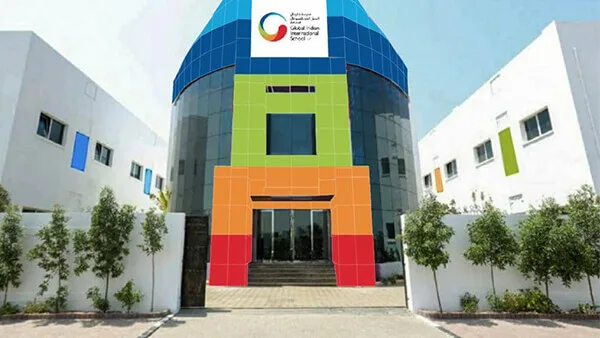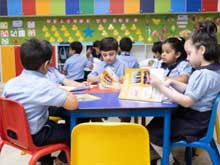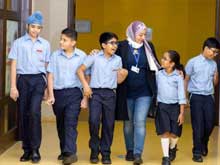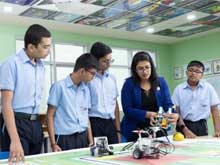In a fast-paced world, where academic achievements are given all the spotlight, we often overlook the positive impact of hobbies on a child’s development.
Do You know? Simple activities which a child enjoys could enhance their cognitive abilities and social skills leading to a brighter future.
● As per Stanford University researchers who conducted a study on 5000 children; it was seen that those who actively engaged in hobbies were happier and showed improved academic performance.
● As per the American Academy of Pediatrics, children who regularly participate in hobbies exhibit lower stress and anxiety levels and have better overall well-being.
So, parents, you should make sure to help your child explore different hobbies by enrolling them in the best preschools in Abu Dhabi so that they unlock their hidden potential.
Let’s understand in the coming sections the importance of nurturing these interests and how they can shape your child’s journey towards success.
What is a Hobby?
A hobby is any activity where children engage with their interest and enjoyment without any intention of having an external reward and is mostly done for pleasure and relaxation during their leisure time.
Hobbies can be anything like painting, handmade crafts, playing any sports, doing any outdoor activities or reading, writing, solving puzzles, gardening, cooking etc.
Every child has different hobbies as it depends on their choices; What one may like, another may not. The key is to encourage them to discover activities that match their interests and passions.
In short, hobbies are more than just pastimes – it is a powerful tool for self-expression, personal growth, and holistic development & learning.
Overview of child development
Early child development involves physical, cognitive, emotional, and social growth which occurs from infancy through adolescence. It’s influenced by multiple factors such as inborn abilities, environment, and individual experiences
● Physical Development: It is related to the growth of body, height, weight and motor skills development. From grasping objects to doing small things in the form of activities; improves their coordination and balance which lays the foundation for overall well-being in the later years.
● Cognitive Development: It involves the gathering of knowledge and problem-solving abilities. It is developed through many activities in preschool such as simple sensory exploration to complex reasoning and critical thinking skills in elementary to secondary school. Their cognitive abilities improve through various stages and are shaped by experiences, interactions, and education.
● Emotional Development: Being aware, expressing things, and regulating emotions play a crucial role in forming healthy relationships and navigating life’s challenges. Children learn to recognize and understand feelings in childhood and develop empathy, resilience, and coping mechanisms in later years.
● Social Development: It involves the acquisition of skills and values essential for interacting with others. Establishing friendships and developing communication skills, etc., helps in building meaningful connections lifelong and fostering a sense of belonging.
The Importance of Hobbies in Child’s Development & Learning
Engaging in hobbies is not merely a pastime; it is a powerful catalyst for fostering holistic development and lifelong learning in children. Below are a few pointers explained in detail to know why it matters the most.
Learning Opportunities
Hobbies offer rich and diverse learning opportunities that extend far beyond the confines of traditional education.
● Academic Enrichment: A child interested in astronomy learns about celestial bodies, scientific principles, etc. While a child interested in cooking explores measurements and experiments in the kitchen.
● Experiential Learning: Whether it’s conducting science experiments, or exploring nature, children actively engage with materials; this hands-on, experiential learning experience deepens their understanding and retention.
● Skill Development: Children who engage in their favorite hobbies take an interest in learning more and get better day by day. It offers opportunities for skill development and refining talents that are both practical and transferable.
● Cognitive Growth: Engaging in hobbies stimulates cognitive functions such as improvising attention, enhancing reasoning, and overall cognitive development. Children challenge themselves to think creatively, analyze information, and make connections between ideas.
● Cultural and Global Awareness: Hobbies also provide insights into diverse cultures, traditions, and perspectives such as exploring world cuisines through cooking, learning languages, or learning folk dances from different countries, etc.
● Life Skills: Hobbies instill qualities that are essential for personal and professional growth such as sports time management, perseverance resilience, etc. It prepares children for success in the real world.
Nurtures Creativity
It is the ability to generate new ideas, concepts, or solutions that are original and valuable. Hobbies provide fertile ground for developing this essential skill in early childhood development. Here’s how it does:
● Freedom of Expression: Hobbies such as painting, writing, or music; help children to freely express themselves without fear of judgment. It allows exploring their thoughts, emotions, and ideas, fostering a sense of creative freedom and self-confidence.
● Exploration and Experimentation: Children explore more and try out new things, techniques and experiments that stimulate imagination and innovation such as mixing color, improvising melodies or inventing stories.
● Problem-Solving Challenges: When children are doing their activities they often face challenges or obstacles that require creative problem-solving skills to overcome. For eg:- Designing a new recipe or improvising choreography which tests students’ cognitive abilities and encourages them to think outside the box, fostering resilience and adaptability.
● Cross-Disciplinary Connections: It encourages children to find connections and build creative synthesis such as integrating science concepts into art projects, applying mathematical principles in music composition, etc., fostering a multidimensional approach to creativity.
Build Confidence
Having confidence means believing in one’s abilities, knowing their worth, and having the potential for success. Here’s how it builds confidence in children.
● Mastery and Achievement: Children experience a sense of accomplishment when they master new skills or overcome challenges.
For eg:- scoring a goal in soccer, completing a challenging puzzle, etc., provide tangible opportunities to improve; boosting children’s confidence and self-esteem.
● Positive Reinforcement: When children get positive feedback or admiration and encouragement for their efforts and achievements, they feel valued, validating their talents and contributions.
● Resilience and Perseverance: Children learn valuable lessons when they face setbacks, and failures during their journey. Facing adversity, and bouncing back from setbacks help them to develop the confidence to keep going despite challenges.
● Social Support and Belonging: It provides opportunities for social interaction, collaboration, etc., which help them to become part of a supportive community where they feel respected, appreciated and accepted, boosting their confidence.
Encourages Teamwork
It is the collaborative effort of individuals working together towards a common goal. Hobbies provide many valuable opportunities to develop and practice this powerful skill.
● Shared Goals and Objectives: Many hobbies involve working towards shared goals such as scoring points in a sport, completing a group art project, or performing together team dance which unites children fostering collaboration and cooperation.
● Division of Roles and Responsibilities: Engaging in hobbies requires children to perform different tasks, roles and responsibilities within a group based on their strengths, interests, and expertise such as assigning some tasks in a group project, or coordinating roles for a drama. It teaches them how to effectively distribute workload and leverage each other’s strengths for optimal outcomes.
● Communication and Collaboration: Hobbies foster effective communication and collaboration skills as they learn to exchange ideas, share feedback, and coordinate which leads to active listening, and respectful interaction, laying the foundation for productive teamwork.
● Conflict Resolution: Engaging in hobbies exposes children to different perspectives and opinions, which may sometimes lead to conflicts. They learn in the process, to resolve conflict through negotiation, compromising and finding problem-solving techniques thus it helps to work and address challenges together.
● Celebrating Successes and Learning from Failures: Through hobbies, children learn how to cheer and appreciate others and how to learn from them or work on areas of improvement.
Build Social Skills
Children who have similar interests and passions interact and bond well, fostering friendships and social connections. They learn to understand and appreciate the feelings, and perspectives of others; developing empathy, and compassion. These skills enhance their ability to form meaningful relationships and navigate social dynamics. It provides avenues to expand their social circles and find a sense of belonging within their communities.
Teach Time management
Engaging in hobbies requires children to prioritize their activities and allocate time accordingly, laying the foundation for effective time management. Here is how it helps:
● Creating Schedules: Hobbies often involve regular commitments and structured routines, which help children follow schedules. It teaches them the importance of organizing their time ensuring productivity.
● Balancing Responsibilities: Children learn to manage schoolwork, and extracurricular activities to pursue their interests.
● Managing Distractions: They learn to practice focus and attention on their priorities minimizing interruptions while working on their hobbies which helps in managing time effectively.
● Developing Long-Term Planning: Hobbies teach children to think about the long term which helps them in planning, eg:- They set goals to master a musical instrument or complete a series of art projects, etc., which helps them to break down complex tasks into manageable steps, and persevere towards their goals with patience and determination.
Developing WillPower and Dedication
When Children pursue their interests and goals, they commit time and effort and also learn to overcome obstacles, stay focused, and persevere through challenges thus fostering a strong sense of determination and resilience.
Goal Setting
Children who are engaged in hobbies are encouraged to set and pursue goals for eg:- mastering a new skill or achieving a personal milestone.
It motivates them to plan, prioritize, and work towards objectives, along with that they learn valuable lessons of self-discipline and personal accountability which prepare them for success in academics, extracurricular activities, and personal and professional life.
How Does GIIS Abu Dhabi Assist In Discovering And Cultivating Hobbies?
GIIS Abu Dhabi understands the significance of hobbies and therefore offers a wide range of extracurricular activities and enrichment programs such as sports, arts, music, drama, coding, robotics, and more to cater to each child’s interests and talents.
Not only that, they provide expert guidance, mentorship, feedback, training sessions and personalized attention and support to students, helping them develop their skills and excel in their field.
Their state-of-the-art facilities and resources are excellent. From well-equipped sports fields to music studios to dedicated art rooms and STEM labs, etc., provides students an ideal environment to pursue their passions.
Students also get various platforms to showcase their talents through various awards ceremonies, talent shows, exhibitions, and competitions.
In short, they are committed to supporting students in discovering and cultivating their hobbies through a holistic approach.
Conclusion
Parents remember that hobbies are not just leisure activities; they are the building blocks of your child’s growth and development. By encouraging and supporting their interests, you’re empowering them to explore their passions, discover their strengths, and unlock their full potential which will help them lifelong.
FAQs
Are hobbies important for a person?
Engaging in hobbies is crucial for their personal growth and to foster a sense of fulfillment.
What activities are good for child development?
Activities like sports, arts and crafts, music, reading, and outdoor activities are excellent for promoting the holistic development of a child.
How much time should children spend on hobbies?
It’s essential to balance leisure activities with academic responsibilities and other commitments. So dedicate time equally or prioritize accordingly.
Can hobbies help with academic performance?
Yes, it positively impacts by enhancing cognitive skills, promoting stress relief, and fostering a balanced lifestyle.
At what age should children start developing hobbies?
Children may develop during preschool but through encouragement, exploration and experimentation, they may find activities that resonate with their interests and passions.






